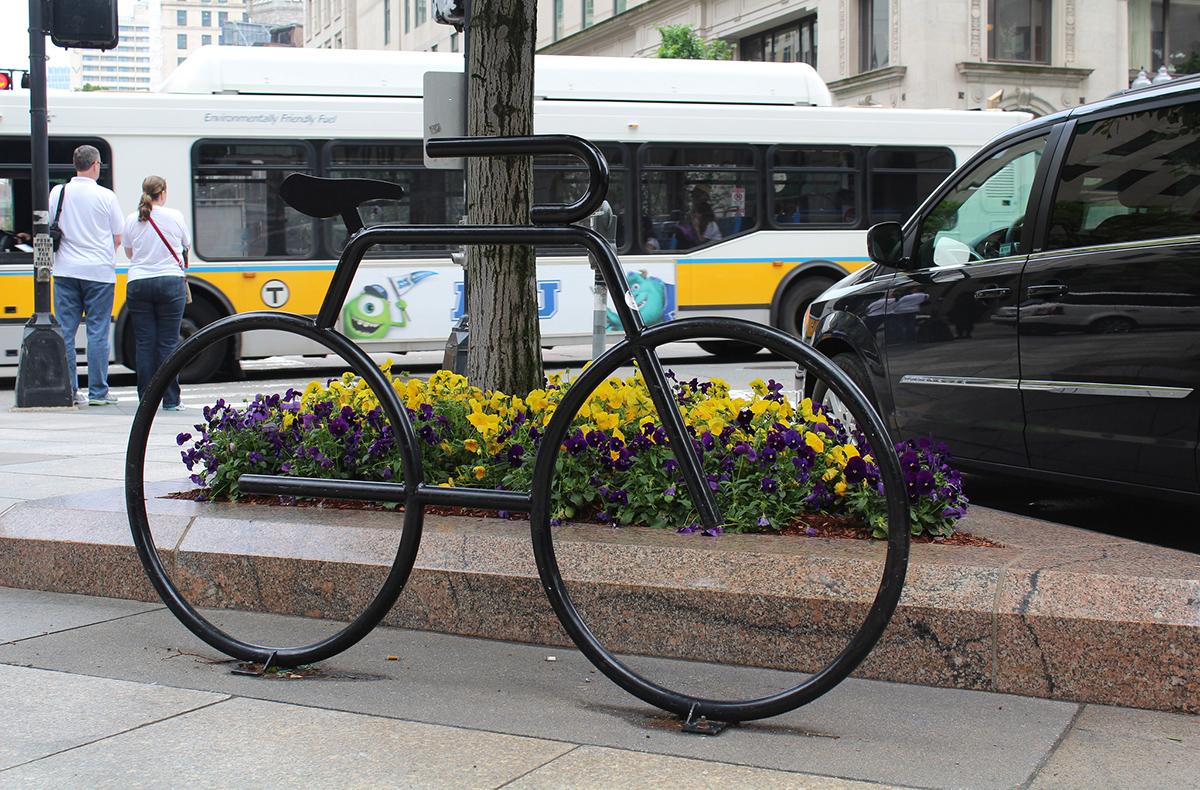New MassBike Executive Director Wants to ‘Humanize’ Cyclists
To Richard Fries, the worst phrase coined when thinking about ways to increase bike ridership statewide is one that comes from the film Field of Dreams, starring Kevin Costner.
“‘Build it, and they will come,’” said Fries, who was recently tapped to serve as the newest executive director of MassBike, the coalition that serves riders throughout the state. “I think far too much advocacy has gone into trying to engineer our way into some bike utopia when we don’t have the tax support for it, and we don’t have the electoral support for it. I believe that demand needs to precede supply.”
That is, getting more bikers on the roads first, and then building out infrastructure from there. “I love bike lanes, and I love bike paths. But we have to make sure they are being built in spaces that they will be used and they will be needed,” said Fries.
On January 15, Fries, a Pittsburgh native and former professional cyclist, will officially take over as head of MassBike. He will be replacing long-time leader David Watson, who announced his resignation back in September after eight years at the helm.
According to an announcement from MassBike, his experience stretches far beyond his time pedaling for a shot at being a bike-racing champion. He has also served as the marketing director for Best Buddies International, and as development advisor for People for Bikes.
“Cycling is so comprehensive in terms of the impact it has,” Fries said. “It’s transportation, it’s recreation, it’s tourism. You just get into so many elements of it and it’s just so big.”
Fries said over the past 30 years the state and MassBike have worked hard to secure a share of the road for cyclists. Now, he wants to secure a share of people’s minds. “For me, that’s a marketing and communications challenge,” he said. “We need a lot in terms of marketing communication, and education.”
He said his goal, as part of that marketing push, is to humanize cyclists so people know they are everyday people, and not just “a third person plural.”
“We are often lumped together as just ‘them,’ and that’s so not true,” he said. “We are fathers, we are grandparents, we are husbands and wives. That’s what I think has to happen in transportation. We have to humanize each other.”
While there’s certainly work to that needs to be accomplished in order to educate drivers, cyclists, and even police officers about the rules of the road, so they can be properly enforced and followed, Fries said it’s “amazing” what’s been done so far. Giving credit to Watson’s legacy, as well as projects spearheaded by the Boston Cyclists Union and Boston’s bike czar, Nicole Freedman, Fries said he’s looking forward to adding to their efforts.
“I think we can do a lot more in terms of tourism, and a lot more with the recreational cyclists in the suburban regions,” he said, pointing specifically to the ring of raodways and paths around Boston that lead cyclists into the city.
Beyond the education aspects that will come with being executive director, Fries said he wants “mainstream Americans” unfamiliar with bike culture to know that getting more people on two-wheels isn’t about some “whacky environmental mission.”
“It doesn’t mean I’m not an environmentalist, but that’s probably number ten on my reasons of cycling,” he said. “I think the number one thing for me—the bulk of my cycling— is the economics of it.”
He said biking is the best way to get around, and he wants to share that vision with communities throughout the Commonwealth. “It’s the cheapest, it’s the most economical, and it’s the most efficient for time. And I think that’s the number one driver into the cyclist lifestyle,” he said.



